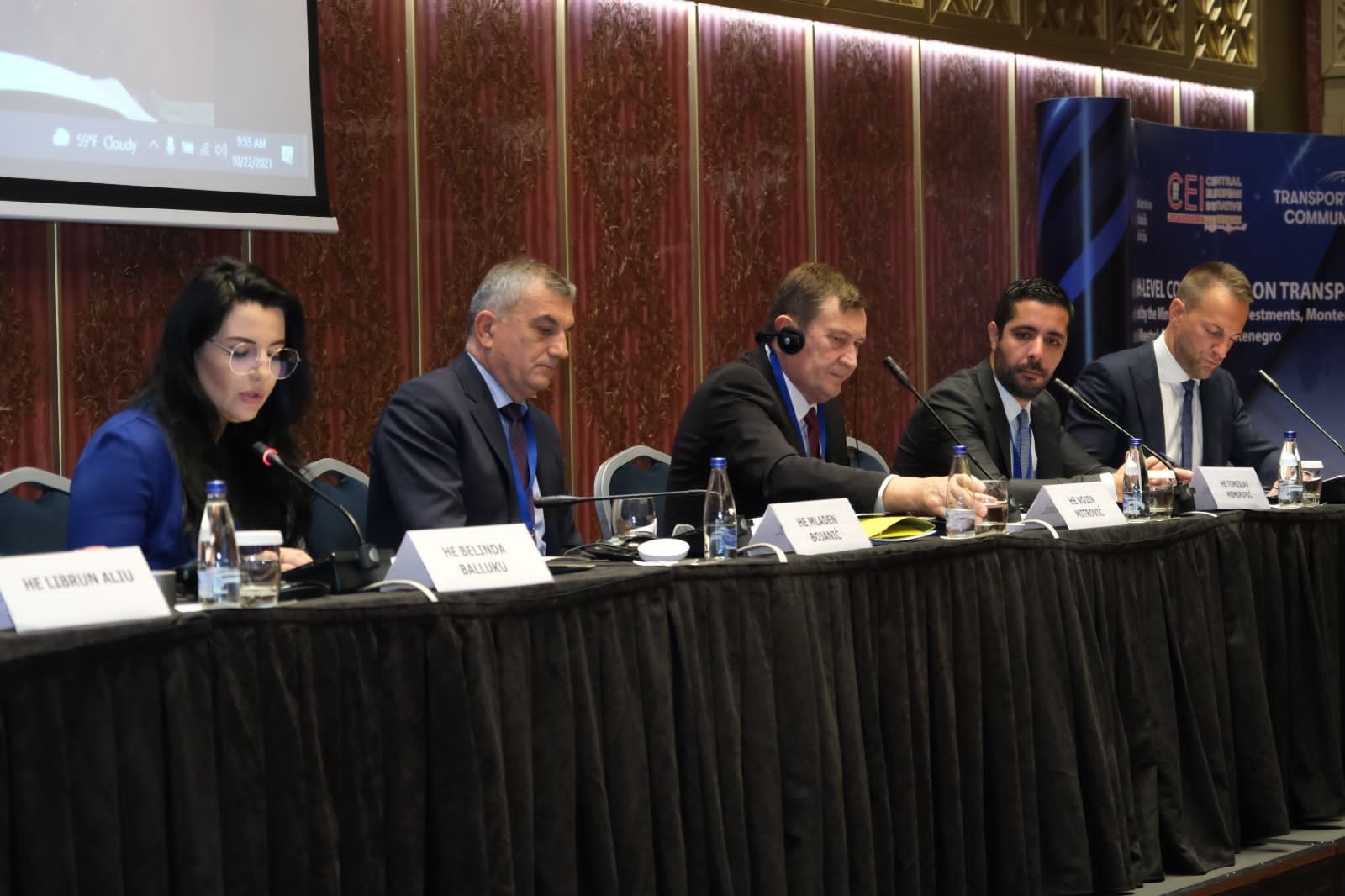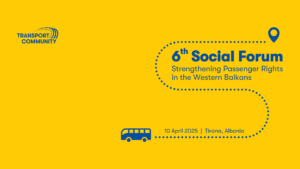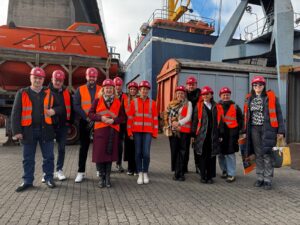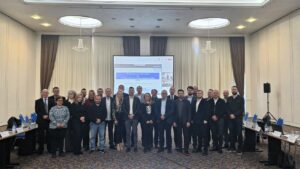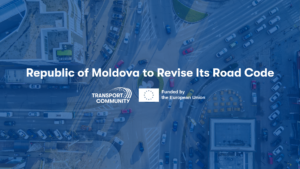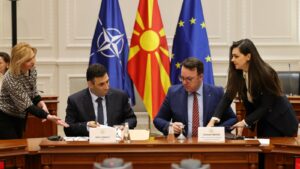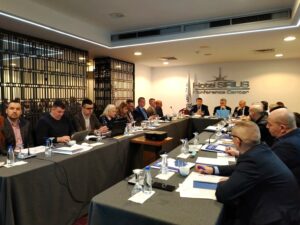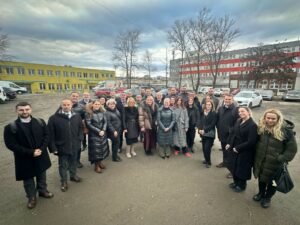Budva, 22.10.2021 – Ministers from the Western Balkans in charge of transport met today in Budva to discuss how to advance implementation of policy reforms in the field of transport.
The high-level conference was organised by the Transport Community Permanent Secretariat and the Ministry of Capital Investments, on the occasion of the Montenegrin presidency of the Central European Initiative (CEI). Ministers in charge of transport reviewed one-year progress since the adoption of Transport Community’s Action Plans on Road, Rail, Transport Facilitation and Road Safety.[1]
“With four Action Plans, we agreed with our regional partners on a roadmap to deliver safer and sustainable roads, modern, and interoperable rail systems, and to reduce waiting times at the borders. Policy reforms mentioned in these strategic documents need to go hand in hand with good project planning. This will improve the connectivity in the region and bring tangible benefits to citizens,” said Matej Zakonjsek, Director of Transport Communuty Permanent Secretariat.
In the last year, moderate progress was achieved in road transport. Improving transport resilience and deployment of alternative fuels remain considerable challenges for the region, with positive development noted in the area of road maintenance. Albania led the way among regional partners by adopting the national road ITS strategy.
In rail sector, participants noted that while there was limited progress, the region is committed to re-establishing direct intercity train links between major cities, digitalisation of railway systems and opening of the rail markets. In the one year after the adoption of Rail Action Plan, implementation of EU rail legislation progressed well in all six regional partners. An ongoing challenge is the safety of level crossings, which will be addressed by the Transport Community with a region-wide public awareness raising campaign.
When it comes to reducing waiting times at borders and administrative crossing points, citizens of the region will benefit from one-stop crossings, as specified in the Transport Facilitation Action Plan. Concrete steps forward were made since the adoption of the Action Plan, such as the opening of the joint border crossing points between Montenegro and Bosnia and Herzegovina and between Montenegro and Albania.
“There are challenges regarding waiting times at borders between the Western Balkans partners and neighbouring EU Member States. Building on the success of Green Lanes, which were established at the beginning of COVID-19 outbreak to prevent shortages of essential goods and medical equipment, we are working with regional partners to extend Green Lanes to borders with the EU. This will save time to our citizens and increase economic activity with the EU. The launch of Green Lanes was one of the most successful examples of regional cooperation, managing to preserve trade flows, not only for economic benefits, but also for effective fight against the pandemic. We now need to use the lessons learned during the pandemic and apply the same principles to border crossings with the EU,” Zakonjsek said.
In the area of road safety, there is a need to improve the coordination mechanisms and enhance the links between all road safety actors (transport sector, police, health and education authorities). Road safety remains a priority for the region, where the number of dead and injured remains above the EU average. The recent establishment of the Western Balkans Road Safety Observatory as unified platform to monitor road safety and collect harmonised data, was recognised as a welcome step that will reverse the negative trends.
For additional information contact: Marko Kovacevic, Transport Community Permanent Secretariat Communication Officer, mkovacevic@transport-community.org +382 67 262 018
[1] https://www.transport-community.org/action-plans/


